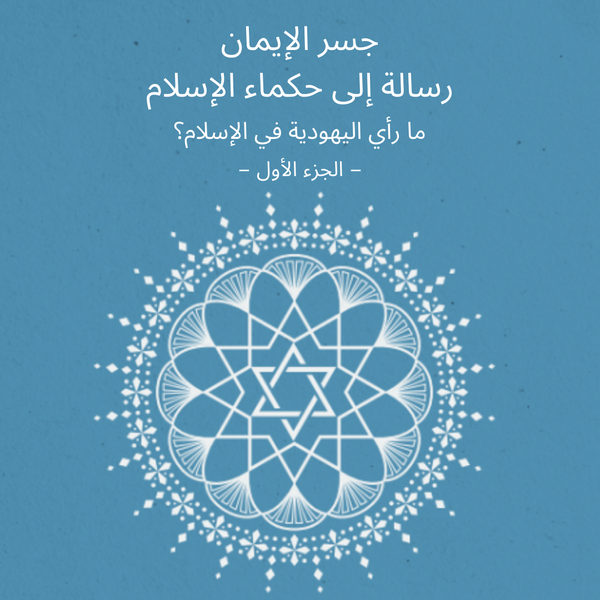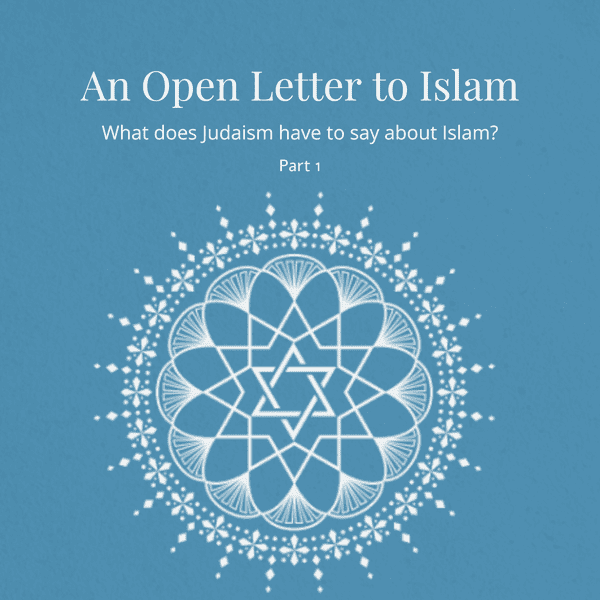rylah
Gold Member
- Jun 10, 2015
- 21,143
- 4,483
- 290
Historic Invitation | Open letter to the leading scholars of Islam: "We need 3 agreements"
Introduction - the address

Rabbi Oury Cherki was born in Algeria in 1959. He moved with his family to France where he lived for several years and then immigrated to Israel in 1972. He studied Torah with Rabbi Zvi Yehuda HaKohen Kook in the Merkaz HaRav Yeshiva as well as with Rabbi Yehuda Leon Ashkenazi and Rabbi Shlomo Binyamin Ashlag. He was ordained as a rabbi and has been serving as the rabbi of the Bet Yehuda community in Kiriat Moshe, Jerusalem. Rabbi Cherki teaches at Machon Meir and is the head of the Noahide World Center.
Historic context
From Josephus discourse in "Against Apion" with the ancient Hellenist idol worshippers, through Rabbi Yehuda HaLevy's "Book of Refutation and Proof on Behalf of the Despised Religion", and Ramban's disputations in Barcelona with the Christian clergy; There was a constant exchange and of ideas, even if hostile, or with the intent to convert, between the Jewish scholars and the leading contemporary intellectuals and clergy of the generation.
One remarkable example of such exchange, is in the Babylonian Gmara, Tractate of Sanhedrin, reference to Gviha Ben Psisa court debate before Alexander the Macedonian, when several nations come to claim their historic arguments against Israel. Among those were Egyptians, Cna'anites and African nations, with Ishmaelites.
However, unlike debate with all those nations, the debate with the Ishmaelites abruptly ends in silence, without a response, despite Alexander encouraging them to engage.
Simillar to that, despite proximity and mutual influence as result of mutual history, this history is silent on fundamental engagement between Hebrew and Islamic scholars, on the principles of morality, law, shared values and differences, that may contribute the knowledge, service of G-d in the world, with further realization of human potential.
And there's a reason for that, like the characteristic arguments of each nation mentioned above. But they should be explained by the addressed scholars, when the engagement develops, in the manner they find appropriate.
A formal council between the Hebrew and Islamic courts,
will be the first event of that kind, historically a turning point.
The format
Suggested format is not a general inter-religious meeting for a news item, to talk about commonalities and vague commitment to peace , ending with a vegan desert and smiles for optics, but nothing practical.
The invitation is for serious scholars, authorities of Islamic courts, universities, clergy, leading public speakers and thinkers of the Islamic Umma worldwide, that can handle difficult questions in a constructive manner and due respect.
May those who come in good faith, merit G-d's blessing.
Introduction - the address

Rabbi Oury Cherki was born in Algeria in 1959. He moved with his family to France where he lived for several years and then immigrated to Israel in 1972. He studied Torah with Rabbi Zvi Yehuda HaKohen Kook in the Merkaz HaRav Yeshiva as well as with Rabbi Yehuda Leon Ashkenazi and Rabbi Shlomo Binyamin Ashlag. He was ordained as a rabbi and has been serving as the rabbi of the Bet Yehuda community in Kiriat Moshe, Jerusalem. Rabbi Cherki teaches at Machon Meir and is the head of the Noahide World Center.
Historic context
From Josephus discourse in "Against Apion" with the ancient Hellenist idol worshippers, through Rabbi Yehuda HaLevy's "Book of Refutation and Proof on Behalf of the Despised Religion", and Ramban's disputations in Barcelona with the Christian clergy; There was a constant exchange and of ideas, even if hostile, or with the intent to convert, between the Jewish scholars and the leading contemporary intellectuals and clergy of the generation.
One remarkable example of such exchange, is in the Babylonian Gmara, Tractate of Sanhedrin, reference to Gviha Ben Psisa court debate before Alexander the Macedonian, when several nations come to claim their historic arguments against Israel. Among those were Egyptians, Cna'anites and African nations, with Ishmaelites.
However, unlike debate with all those nations, the debate with the Ishmaelites abruptly ends in silence, without a response, despite Alexander encouraging them to engage.
Simillar to that, despite proximity and mutual influence as result of mutual history, this history is silent on fundamental engagement between Hebrew and Islamic scholars, on the principles of morality, law, shared values and differences, that may contribute the knowledge, service of G-d in the world, with further realization of human potential.
And there's a reason for that, like the characteristic arguments of each nation mentioned above. But they should be explained by the addressed scholars, when the engagement develops, in the manner they find appropriate.
A formal council between the Hebrew and Islamic courts,
will be the first event of that kind, historically a turning point.
The format
Suggested format is not a general inter-religious meeting for a news item, to talk about commonalities and vague commitment to peace , ending with a vegan desert and smiles for optics, but nothing practical.
The invitation is for serious scholars, authorities of Islamic courts, universities, clergy, leading public speakers and thinkers of the Islamic Umma worldwide, that can handle difficult questions in a constructive manner and due respect.
May those who come in good faith, merit G-d's blessing.
Last edited:



